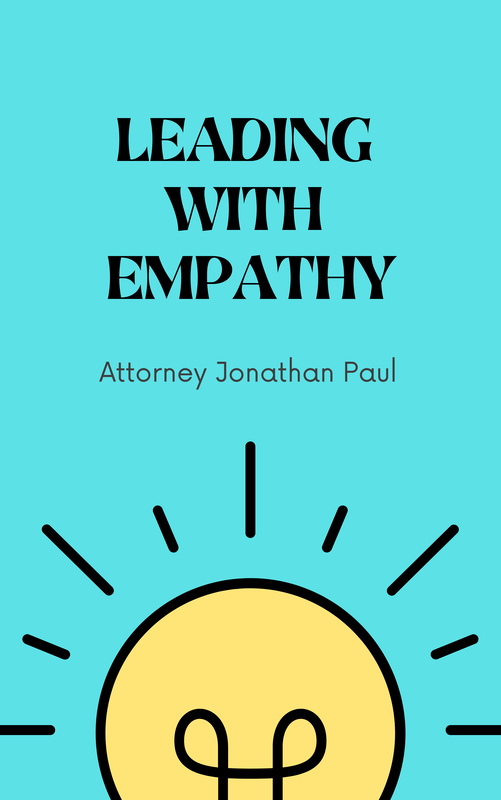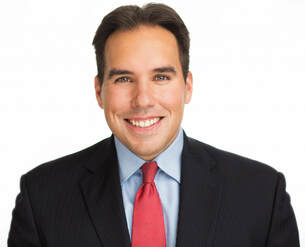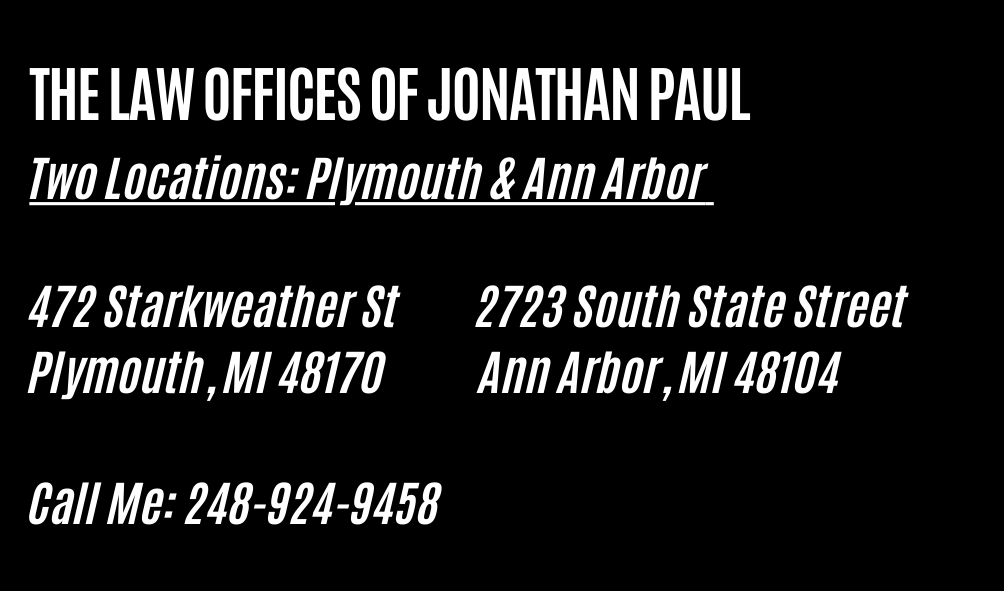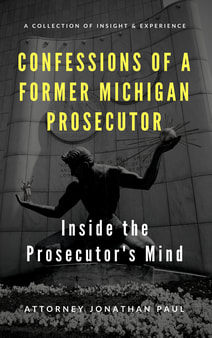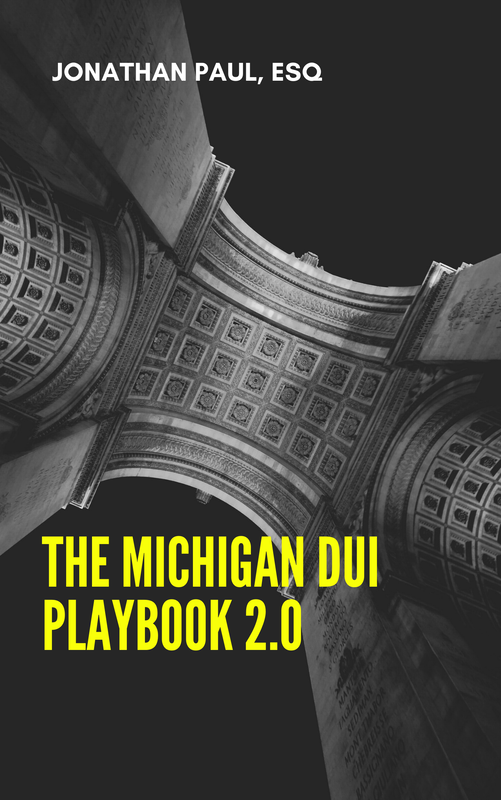|
Here are some unique thoughts on a third offense, and what might be different about the approach below.
In Michigan, a third offense is a felony, and there is no timeline to get outside of this window. A DUI conviction at 18, 38 and 68 is still a felony. The Secretary of State still uses the 3 in 10 rule, so under this scenario, your driver's license would be impacted as a first offender, and not a third offender. A third offense DUI in Michigan comes with a mandatory 30 jail sentence with a maximum of 5 years in prison. Most DUI third offenses will carry a jail term of 30 days to 6 months depending on the judge. As a former prosecutor who worked on felony DUI cases there is very little room for sympathy for the defendant. Most prosecutors will not deal and will just say "set it for trial", but there are some counties in Michigan where the prosecutor might be open to resolving in a different manner. They are very selective in the cases they might reduce down to a misdemeanor, and you really need to backup that request. For a client, avoiding a felony conviction means everything. They can get around not driving or even going to jail, but being a felon for the rest of their life - there is no going back on that, and it cannot be expunged. It's my goal for any client charged with a DUI felony to avoid that conviction. The proactive program is even more intense for a client with no prior or a single prior DUI offense. We might be in a situation where we are entering inpatient rehab, we are certainly testing daily for alcohol, we might even install an interlock in our own car before being ordered. It's our goal to jump on the hood and just ask for help - we want real help though - if there's a mental health issue, we try to get into a mental health court - if its related to military service, we try to get into a Veteran's Court. Sobriety court is always an option, but the prosecutor needs to agree to reduce the case, because most sobriety courts do not take felony cases. I tell my felony DUI clients that there is no wiggle room - here is exactly what you're going to do to work with me, and it's going to get more intense as we go along. We need to make a difference in the case every single day and we earn back small pieces of credibility with the prosecutor and judge. Below you will see my detailed thoughts on drunk driving cases from both the prosecutor viewpoint and the criminal defense side of the case. As a former prosecutor, I had very little patience for a second offender, and most prosecutors believe the same thing, but leverage still matters. Poke holes in a prosecutor's case and well the prior offense isn't going to make the second case any stronger. If anything a prosecutor may try to come up with a compromise to make sure the defendant is at least on probation and being monitored. Those holes need to be backed up with currency outside of the courtroom so a prosecutor can justify "dismissing a DUI" when the person has a prior - that's a lot to swallow as a prosecutor and risky in the political world. As a former prosecutor in New York City and Michigan, I had very different experiences in these roles. In New York City, defendants would typically receive quick reductions down to non-misdemeanors, with a very limited if any license suspension and rarely did a first offender receive any probation. In Michigan, drunk driving cases were handled a lot differently. In Michigan, a drunk driving case can really vary depending upon what police department makes the arrest, because it determines what courthouse the case is heard, an who the prosecutor on the case is going to be. Some prosecutors are quick to reduce Operating While Intoxicated or Super Drunk charges down to Impaired Driving, but rarely anything below this offer. Judges typically put people on at least 12 months of probation, and some courts do send first offenders to jail. Prosecutors typically view DUI cases as serious charges, and pretty straight forward to prosecute. Prosecutors look for evidence of driving the car then the chemical test result being over the legal limit. If they have evidence of both of those, they are confident in their case, and typically hold firm in standard offers to the defendant. Some prosecutors have "policies" and will not make offers or will play hard ball day one, inviting a trial if you don't like the offer. The majority of prosecutors don't want to set DUI's for trial and make themselves much busier; they have large caseloads and want to resolve cases. Most prosecutors will give some benefit of the doubt to someone with no prior DUI convictions, but will look harshly upon accidents, poor driving, an exceptionally high BAC number, and any funny business in terms of acting poorly toward the police officers. If the case is a clean traffic stop, a relatively common BAC number, there's likely to be an opening offer that might be appealing to some defendants. As a criminal defense attorney I don't want to settle for the default/"what everyone else gets" result. I want to create more options for my client, and we do that by creating leverage both outside and inside the courtroom. We create leverage outside of the courtroom by being proactive and changing the perception of the case from day one. When the case begins depending on your record, the prosecutor and judge will view you as a dangerous drunk driver who is lucky to not have killed someone. As a criminal defense lawyer I anticipate the perception of my audience and look to expand the information pool with positive information about my client's past, present and future. When I say information, I don't just mean telling the prosecutor my client has a good job, a family and he's a nice guy. The information comes from real action, which begins with a substance abuse evaluation with a follow-up on recommendations. The majority of my DUI clients are not frequent drinkers, they typically don't have more than 2-3 drinks, and have no criminal record. They have good jobs, pay their taxes, respect the law, and agree that drunk driving is not a good thing, and there should be punishment for the crime. They find themselves facing a DUI charge unexpectedly due to some variable changing on the day of the offense. It usually stems from not planning ahead, because my client has no intention of drinking too much. The night begins without plans in place, and the environment, surroundings, people involved are different than expected, and my client drinks more than usual, and they are unfamiliar with this situation, and don't put the breaks on. The drinks keep flowing and those drinks impact positive decisions. The client's decisions are no longer completely their own and they trick themselves into believing "risking it" is a good trade off to leaving a car in a parking lot, missing an early doctors appointment or their kids little league game. They make the decision to drive, because the chances are more likely they get home ok without incident. They fail to weigh the consequences, even if smaller and less likely - what if I get caught? Worse, what if I kill someone? If we can make this situation make sense to a prosecutor and judge, we're going to get a lot further along in our case. Essentially we can isolate this poor choice and get away from any perception that this is typical behavior, an addiction, something we can't control. If we can pinpoint how we got there and work on that, a prosecutor and judge will view my client in a different light. Overcoming the "dangerous drunk driver" perception starts with identifying the true issue, demonstrating that you're taking it seriously, and ready and willing to work on it. With the evaluation comes a recommendation, which is usually counseling, alcohol education, Impact Weekend, AA attendance. We do proactive community service, MADD panels and most importantly daily alcohol testing. Yes, we voluntarily begin alcohol testing, because we need to show that alcohol is not a friend, and it's not something we rely on, we're dependent on, and rather than say "I learned a lot, I don't even a want to drink", we go ahead and show it. This is how we create leverage outside of the courtroom. I've used this leverage to turn DUI cases into non-DUI cases, probation cases into non-probation cases, and saved people's career, family and possibly their life. Prosecutor's don't like to go outside of the box, but if they do, it will require currency to justify their decision. Being proactive outside of the courtroom is going to lead to better deals with the prosecutor, and more favorable sentences from probation and the judge, but the best outcomes also have leverage inside of the courtroom, which means we need to find something within the facts of the case to push the buttons of the prosecutor a bit - create some sort of holes or uncertainly in the case. As a defense lawyer I view DUI cases within three windows: 1. The traffic stop 2. The arrest 3. Chemical tests Traffic stop requires reasonable suspicion, an arrest require probable cause, and chemical tests must be done correctly to be admissible against my client. A full review of reports, videos, audio, and other evidence will hopefully provide us something to work with in terms of creating leverage. This could mean leverage for pretrial motion or at trial. Defeating the stop could mean everything after the stop is inadmissible. Showing the arrest was not based on probable cause could suppress any field sobriety, statements, and chemical tests. Suppressing the blood or breath test could leave a prosecutor quite thin on evidence for trial. The goal is not necessarily to file the motion or set for trial, because that runs the risk of losing control of the outcome or losing a plea offer, but having the leverage to proceed with either option - something more than a blanket "I'll set for motion or trial" - that's a bluff and prosecutors do not bite on those. You need to show them the leverage in a reasonable way - don't pull out your sword, just talk about the sword a bit. Win with consensus, work toward a compromise that works for everyone. I've had prosecutors offer disorderly conduct and dismiss drunk driving because it was the right outcome, but I needed both the leverage within the evidence of the case, and my client needed to back it up outside of the courtroom. Clients contact me all of the time with felony DUI cases; in Michigan, three DUI's can happen over a lifetime, even if the prior cases are 10 and 30 years in the past. Many counties in Michigan will not reduce or dismiss the felony charge, and consider a misdemeanor. That's until our law firm arrives on the case.
Because we're so proactive from day one, and make real changes in the life of the client, we're able to work out some creative deals with the prosecutor and judge to accomplish some big goals. Recently out law firm was able to take a felony DUI third offense and turn it into a misdemeanor DUI, which saved the client mandatory 30 days jail and up to 5 years in prison and we saved her driver's license by getting her into a sobriety court, because Michigan still follows the 3 DUI's in 10 years for purposes of your driver's license, and the sobriety court allowed her to avoid a hard suspension. This deal was made in a county that had not reduced a felony DUI to a misdemeanor in years - other attorneys recognized this, and were shocked by the result - they asked what our secret sauce was for getting this result. It's simple, work hard, keep your head down, commit to making changes in your life - go harder than you've ever gone before, and kick some ass. Hard work is not a guarantee to success, but it's your best and only chance at shocking the world. If charged with a felony DUI in Michigan, your case will begin at the district court level with a preliminary examination. This would be a third offense or more, or a case, which caused serious bodily injury or death.
If charged with a felony, you are entitled to this hearing within 21 days of your arraignment, but can waive this timeframe if you wish to invest more time in conducting discovery, or working a proactive plan in order to open up some options for resolution. A preliminary examination is put in place to “test” the evidence before the case can go to the circuit court level. The “test” is probable cause; is it probable based on the evidence that a crime was committed, which is named in the information, and is this the person that probably committed it. This is not a test of guilt or innocence, but a safeguard put in place to make sure that someone is not charged based on very thin or problematic evidence. If there is enough evidence your case is “bound over” to the circuit court. This can be done by holding the examination and having the judge weigh the evidence, or both sides can agree to a waiver. Many innocent people are “bound” over, because in DUI cases, there is usually enough evidence that it is probable the person arrested broke the law in some way with alcohol or a controlled substance. For example, there may be evidence that the Defendant tested over the legal limited or had marijuana in their system when driving. That would make it probable that a crime was committed, but not quite guilty. This book is filled with defenses to cases where the Defendant “looks guilty”. So how do you beat the case at preliminary exam? You can beat the case in two ways. An outright dismissal of charges, or a reduction down to a misdemeanor. First, outright dismissal is rare for a DUI case, because there will usually be some triable facts, which are better resolved at trial, but what if there is concrete evidence that the Defendant was not the driver? What if it turns out that the roadway, which the Defendant operated was not open or accessible to the public? What if the traffic stop was bogus and the officer lacked a legal reason for conducting a traffic stop? These, and many other situations could lead to a dismissal. Second, a limited number of counties in Michigan will consider dismissing a felony DUI case, and reducing in down to a misdemeanor. This is a possibility if the current charge is a “true third” meaning you’ve only had two prior offenses. It helps if the priors are deeper in the past, and not recent, and if the BAC number is somewhat on the lower end of the spectrum, and there was no accident. I’ve been able to have a lot of felony DUI cases dropped to misdemeanors, but those particular cases had clients who worked their butt off on my proactive program, and were willing to make major commitments to sobriety including daily testing, intensive treatment, and sometimes sobriety court or jail alternative programs like Impact Weekend. If the case is reduced down to a misdemeanor then it will be handled at the district court level, because a felony is now off the time table along with prison time. A judge will still consider your past offenses, but has less in his/her bag of sentencing tricks, because the offense is now a misdemeanor. The prosecutor decides the charge, the judge decides the sentence. When charged with a DUI in Michigan, there are a number of consequences; one of those consequences is impact on your driver’s license. The court has no say over what happens to your license, because the Michigan Secretary of State is the lone authority on what happens to your ability to drive if convicted of DUI offense.
The Michigan Secretary of State can only sanction a Michigan driver’s license, which means if you have an out of state license, Michigan cannot do anything other than control your ability to drive within the State, but not outside of the State. The Secretary of State can either restrict, suspend or revoke a driver’s license. A restriction allows some driving, typically to school, work, medical appointments, community service, counseling, court and a few other exceptions. A suspension can take away the driver’s ability to drive for a limited period of time, and once the time passes, the driving privileges resume. Revocation is a lifetime loss of driving privileges, but they can be restored by the Secretary of State at a future, but uncertain date. License impact depends upon the type of conviction. Here is a brief breakdown of the most common offenses. * Impaired Driving - 90 days restricted driving * Zero Tolerance - 30 days restricted driving * Intoxicated Driving/Drugged Driving - 30 day suspension, 150 days restricted * Super Drunk - 45 days restricted driving, 320 restricted with ignition interlock installed * Second Offense - 1 year suspension * Third Offense - license revoked, eligible to reapply after 1 year In Michigan, the criminal penal code says it’s a second offense if you have two convictions within seven years; the date of offense is used on the subsequent offense to make this determination. So if you were convicted on September 2nd 2001, you would fall into the second offense category if you are subsequently arrested on or before September 2nd 2008. For a third or more offense, there is no time limit; it’s simply within a lifetime. So you can have a conviction from 1950, 1999 and 2016. There isn’t much strategy in timing when it comes to the criminal code; the best approaches are defeating the case, or resolution with a reduction, sobriety court or sentencing agreement. While timing for the criminal code can’t be impacted, it is the exact opposite when it comes to the Secretary of State. The Secretary of State has the same seven year mark for second offenses, but they use the conviction date for measuring this period. This means that if you were convicted of a DUI on September 2nd of 2001, and subsequently arrested in the summer of 2008, there is a lot of strategy involved. If my client has decided to resolve the case or even go to trial, we make sure the “end” of the case takes place after September 2nd of that year, which would put us outside of the seven year window. The client if convicted would be treated as a first offender outside of the seven year window. This strategy could mean the difference between losing his/her ability to drive for a full year vs being restricted for 90 days. This same strategy is even more crucial when it comes to third offenses. Unlike the criminal penal code, the Secretary of State does use a ten year window. Many of my clients have two very old DUI’s from 10 to 20 years ago. While they will still be charged as a third offender, they can escape the license sanctions for a third offender with the right timing. There’s a chance a third offender could be treated as a second offender, or even a first offender with the right timing strategy. When I represent a DUI client with prior DUI offenses, it’s important to discuss the year of the offense, the court and the circumstances behind the case. Most of the time, a prior DUI offense is permanent, and can escalate the present day case into a second or third offense. It could also cause the Secretary of State to take more severe sanctions on your driver’s license.
In order for the prosecutor to prevail on either a plea or a guilty verdict for a second or third offense, they must prove the Defendant has prior convictions. The majority of the time, the prior convictions are stipulated by the parties, but there are exceptions. Occasionally a client provides me information about a prior case, and there might be an opportunity to potentially a prior DUI conviction, and which would assist the present day case. An example of how to challenge a prior offense would be if the client plead guilty in the past, but was without legal counsel, hence the plea could be invalid. It would require going back to the original court to make this challenge; it doesn’t mean the old case goes away, but it would take away the “prior” for the new case. This technique would require obtaining the old transcripts and court documents to invalidate the past plea. I’ve already covered how my proactive program helps inside the courtroom with the prosecutor, judge, probation and outside the courtroom in my client’s life, but I also wanted touch on a few additional thoughts on felony DUI cases.
When you’re charged with a felony in Michigan, prison is now on the table. In Michigan, a jail sentence is a firm number, and usually ends up being less time served. When sentenced to prison, you only get a minimum number, but the maximum always remains in place; you must also be paroled out; there is no automatic return home date. Going to prison for a DUI case in Michigan can mean a very long time away from your friends and family. Although a third DUI in Michigan could mean up to 5 years in prison, and a DUI causing death could be 15 years in prison, jail is still the most likely outcome for felony cases. In fact for a DUI third offense, there is a mandatory 30 day jail sentence that must be imposed by the judge. While work-release, house arrest and other alternatives were used in the past by judges, most Michigan judges are now following the 30 day jail minimum without these alternatives. In fact, most judges I come across usually have 60 to 120 days jail in mind when it comes to a third offense DUI. When I work with a client who is charged with a third offense DUI, we may be able to work toward a misdemeanor reduction, which avoids a felony record, 5 years worth of prison on the table, possibility of keeping a driver’s license, and the mandatory jail sentence. This is quite rarely offered, but in some Michigan counties it is a real possibility. This result doesn’t just happen, it must be earned, and my program provides the tools and resources to get it done, and get it done well. The first thing any client who is charged with a felony DUI does on my program is begin testing 2-3 times per day daily for alcohol. There is zero benefit of the doubt from anyone once you’ve had 3 or more DUI arrests. The client will also get into intensive counseling and hit an AA meeting 3-5 times per week. These are minimal considerations. I typically add a few other requirements into the mix. Getting my client started on the program provides the client an opportunity to climb out of the very deep hole they have dug for themselves. It’s likely their own families and friends have turned on them at this point, and the community views them as nothing more than a very dangerous and untrustworthy criminal. I try to provide the client with something new, something they have never had in their life. I offer a rigorous program, providing structure and unlimited opportunity to change the perception of their case. Following my lead could mean avoiding a felony, jail, prison and loss of the ability to drive. Each felony DUI in Michigan presents it’s own challenges, but also opportunities to create a healthier client and a safer community. I will not even consider a client charged with a felony DUI if they are not willing to dig in deep, and follow my lead 100 percent. Michigan DUI third offenders face mandatory jail time and the possibility of having a felony conviction on their record. A Michigan DUI third offender has two prior convictions for drunk driving without any time limit for receiving these convictions. The old rule said that the prior offenses had to be within 10 years, but that is no longer the case.
As a Michigan DUI third offender, you will have an arraignment and pre-examination conference; there will be an opportunity to challenge the probable cause of the offense at preliminary examination. Too often, attorney's who are not experienced in trying drunk driving cases will waive the right to the examination; this is a big mistake. The most fruitful opportunity during preliminary examination is the testimony of the arresting officer. Your attorney will be able to lock-in the officer's testimony, and lock out additional testimony. Chances are the arresting officer will only change or add to his testimony at trial to assist the prosecution's case, which your attorney will be able to point out by referencing the prior testimony, which was closer in time to the incident. The officer's testimony can also be helpful in drafting Motions in a Michigan DUI Case. The most obvious advantage of holding a preliminary examination is to find out additional information about the prosecution's case. Knowing the answers to questions, which are not presented in the police reports allow for superior trial preparation. Hearing from the officer prior to trial will also allow your attorney to compare the officer's account of the facts to the clients account of the events. This could be important in determining the Defendant should testify during trial. If the case is bound over to the circuit court via an Michigan preliminary examination or waiver, you will be re-arraigned on the felony charges in circuit court and proceed to a final case resolution. Felony sentencing follows guidelines, which are not followed at the misdemeanor level for a first or second offender. As someone facing a Michigan DUI third offense charge, your number one priority is minimal jail time, but there is a mandatory jail term of 30 days, with the possibility of up to five years in jail. Your attorney may be able to inquire about work release, house arrest, weekend work detail and other jail alternatives, but most judges stick to the mandatory jail sentence. Along with jail considerations, you could face fines that range from $500-$5000, mandatory driver responsibility fees of $1,000 for two years and 60-80 days of community service. The state can put your vehicle into forfeiture proceedings and will immobilize your vehicle for one to three years. The state will take away your privilege to drive for a minimum of one year, but could take away your privilege for the rest of your life; driving is a privilege, not a right in the State of Michigan. Along with these life alternating penalties, a felony conviction means you will ineligible for certain jobs, licenses and will no longer be able to serve on a jury or vote. Your must hire an experienced Michigan DUI attorney to be your advocate during this life alternating challenge. In Michigan, felony charges are guided by the Michigan Sentencing Guidelines. While most Michigan DUI offenses are misdemeanors, there are three common felony charges: The sentencing guidelines were enacted to ensure consistency and uniformity in procedures around the state. At sentencing, you will have a unique "prior record variable" score which will depend upon your prior record, including felonies, juvenile convictions and misdemeanor offenses. Once you have your PRV, the offense variable (OV) score must be determined. The OV is based upon the very nature of the current offense, and if the offense is violent, dangerous, or a number of other factors. Combining the PRV and the OV, you will be left with the sentencing range. At sentencing, the prosecutor and your attorney will present their scores and arguments regarding what the proper number should be for the defendant. The court will hear both arguments and review the determined range, but the court has discretion when imposing a sentence. It's possible for the range and mandatory sentences to differ; your range may be 0 to 6 months, but for a Michigan third offense DUI conviction, you must serve a minimum of 30 days in jail. It's important to have a clear picture of the expectations for your sentencing. |
Click to Email Me Categories
All
|
Ann Arbor Office LocationPlymouth Office Location |
Representing DUI Clients in MichiganRepresenting clients charged with a DUI in Ann Arbor, Canton, Brighton, Howell, Saline, Adrian, Taylor, Plymouth, Northville, Westland, Ypsilanti, Pittsfield Towsnhip, Warren, Sterling Heights, Farmington, Pontiac, Romulus, Lansing, Novi, South Lyon, Southfield, Birmingham, Bloomfield Hills, Royal Oak, Troy, Rochester, Jackson, East Lansing, Garden City, Livonia, Dearborn, Detroit, St Clair Shores, Hazel Park, Ferndale, Madison Heights, Waterford, Milford, Shelby Township Clarkston, Oak Park, Berkley, Fraser, Sterling Heights, Clinton Township and others throughout Washtenaw, Wayne, Monroe, Jackson, Genesee, Macomb, Ingham, Lenawee, Livingston and Oakland County.
|

